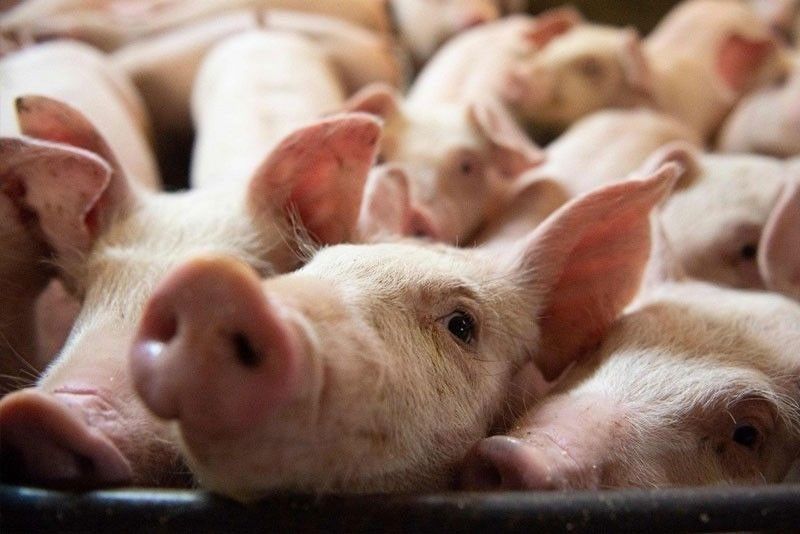DA probing how ASF reached Davao Occidental

DAVAO CITY, Philippines — The Department of Agriculture (DA) and local officials of the provincial government of Davao Occidental are conducting a probe aimed at tracking how African swine fever (ASF) reached the area.
The ASF case in Davao Occidental is the first ever outside Luzon that resulted in the killing of at least 1,000 pigs, leading officials to try and contain the virus and stop it from spreading.
ASF is a severe viral disease affecting domestic and wild pigs, which has been responsible for serious production and economic losses in the pork industry.
Agriculture Secretary William Dar ordered the investigation, particularly in areas which the town of Don Marcelino actively trades with, such as Malita, Santa Maria and Jose Abad Santos towns, all in Davao Occidental and Sulop, in Davao del Sur.
The local government in Davao Occidental has also implemented a strict lockdown on the movement of pigs for slaughter in Malita and Don Marcelino.
Dar commended Davao Occidental Gov. Claude Bautista, and respective mayors of the two towns for enforcing a complete, but temporary, lockdown, and in establishing quarantine checkpoints round-the-clock, secured by barangay tanods and uniformed Armed Forces of the Philippines (AFP) and Philippine National Police (PNP) personnel.
Dar also met with representatives yesterday from the the Davao Occidental provincial veterinarian, municipal agriculture officers of Don Marcelino and Malita, and officers of the PNP, AFP, Provincial Environment and Natural Resources office, Municipal Environment and Natural Resources office, Provincial Health Office, as well as the DA-Bureau of Animal Industry (BAI) veterinary quarantine service.
DA-BAI national director Ronnie Domingo instructed the Davao regional veterinary quarantine officers (VQOs) to extend full assistance in restricting animal movement, following the 1-7-10 protocol in affected barangays.
Domingo also advised other regional VQOs in Mindanao to strictly enforce quarantine procedures and monitor animal movement.
Dar called for strong cooperation among hog raisers and traders to stop the transport and sale of live hogs and pork products from suspected areas.
The DA-Regional Field Office 11 quick response team, together with the Davao Occidental provincial veterinary office and municipal agriculture office of Don Marcelino, conducted an investigation on Jan. 29 in the town’s eight affected barangays of Linadasan, North Lamidian, South Lamidian, Calian, Mabuhay, Lawa, Nueva Villa and Baluntaya.
The composite team also reported ASF incidence in seven barangays in the adjacent town of Malita: Bito, Kidalapong, Tubalan, Felis, Mana, Talogoy and New Argao.
Laboratory examinations of affected animals revealed similarities of lesions for classical swine fever, or hog cholera, and ASF.
Backyard farmers in the area practice group rearing (pagalam system) of hogs, from different owners, most having no proper housing provisions nor biosecurity practices.
The hog farmers in areas such as Davao Oriental also reportedly do not practice vaccination, vitamin supplementation and deworming. Household butchering of animals is common, especially when the livestock are exhibiting weakness or disease, and are sold to neighbors and relatives.
Animal trade is by means of viajero (bukag-bukag), who purchase sick animals at low cost and transport them by motorcycle to consolidators in the nearby town of Santa Maria for distribution to several areas in Davao del Sur.
Blood samples were collected and submitted to the DA-BAI Region 12 animal disease diagnostic laboratory in General Santos City on Jan. 30.
Results showed samples were positive for ASF and were immediately submitted to the DA-BAI for confirmation.
Secretary Dar ordered all concerned DA offices to extend technical assistance to affected hog raisers, ensure food safety at all times, and strictly enforce the 1-7-10 protocol.
He also reiterated that ASF cannot be transmitted to humans, and that pork is safe to eat.
Dar urged all consumers to always look for the seal of the DA’s National Meat Inspection Service that ensures all livestock and poultry animals are disease-free before they are slaughtered.
Lack of urgency
Mindanao Development Authority (MinDA) chairman Emmanuel Piñol said there is unpreparedness on the part of the DA, as facilities to prevent ASF’s spread have not been established yet.
The former agriculture chief went to ground zero on yesterday and passed by a police outpost turned makeshift quarantine station in Malalag, Davao del Sur.
“The police officer told me that what was given to the ‘quarantine station’ were three ‘basins’ filled with disinfectant where commuters are asked to step in as they pass by,” Piñol said.
“There seems to be no sense of urgency. If this is how slow government response is, then this ASF will really spread. MinDA is not an animal quarantine agency but we are working closely with other agencies to address this problem because it could adversely affect the economy of Mindanao,” he added.
- Latest
- Trending




























